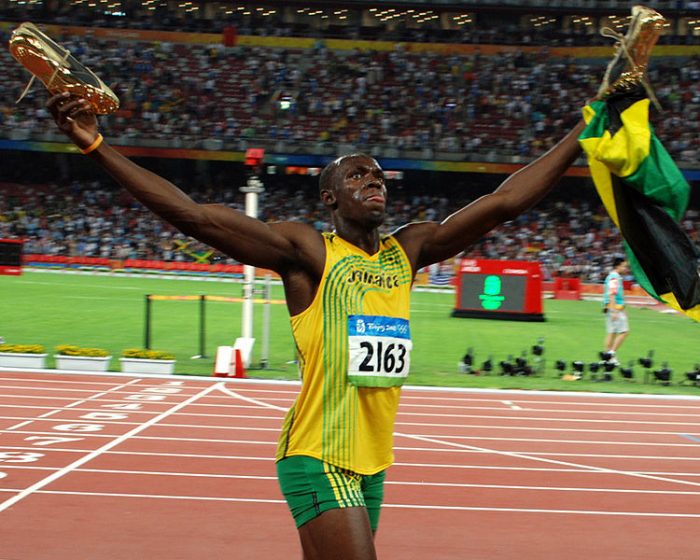In Amy Cuddy’s TED talk on body language: Your Body Language Shapes Who You Are, I discovered some impressive statistics to support the “fake it ’till you make it” concept of physiology. It’s been long known that not only does your mental or emotional state affect your body language, but the reverse is also true. You can choose to change the way you feel by assuming a different posture, pose or facial expression.
I’ve been telling this to my boxing and kickboxing students for years. If you decide you’re tired and start slumping and plodding around the ring, your mind will accept the idea and make it even truer. If, however, you consciously reject the idea “I’m tired” and lift up your head, start moving a little faster, perhaps bouncing a bit – basically faking high energy levels – your mind/body duality will respond to this by causing you to actually feel more energetic. It’s like magic.
A similar trick that can be used as a coping strategy for anxiety attacks works by faking a smile.
If you place a pen or pencil between your teeth without allowing your lips to touch it, you will force the corners of your mouth up to mimic a smile. It’s physically impossible to panic while smiling so if you have the presence of mind to do this at a time when you would usually suffer from an anxiety attack, you should find it a lot easier to remain calm.
Much body language is universal
The victory pose (known as Pride) shown in the image of Usain Bolt as well as the header image of Nico Rosberg, is one of these universal postures. The victorious athlete raises his or her arms into a V shape, lifts their chin and pushes out their chest. Research has shown that both people born with sight and those who are congenitally blind will do this when they win at a physical competition. This means that it isn’t a behaviour that we learn when we see others doing it, it’s innate.
Such expressions of dominance are not limited to the human race or even primates.
They can be seen across the entire animal kingdom – mammals, birds and even some fish make themselves larger to show their dominance. The same is true of the opposite signals for submission or powerlessness – both animals and humans will tend to recoil and make themselves smaller when they are feeling weak.
Cuddy and her team conducted an illuminating experiment to determine the physical effects of a sustained high power or low power posture. High power poses are open and relaxed looking. Someone who feels dominant in any given situation will adopt a high power pose. They may puff out their chest and place their hands on their hips (like Wonder Woman), or spread out in their seat with their legs open (usually men) and their arms raised (either with their hands behind their head or draped over the back of the sofa etc). In contrast, low power poses are closed and guarded. A person who feels submissive or powerless will tend to make themselves smaller by hunching forward, perhaps crossing their arms, legs or feet. A particularly low power behaviour is touching or rubbing the neck or head or placing the hands over the genital area in a protective fashion.
If two people are interacting and one adopts a high power pose, the other will usually respond by adopting a more submissive pose (unless, of course, they know themselves to be in a position of power over the other – in which case they’d probably see and raise their dominant pose until the weaker person submits). You can observe this often in an office situation, just watch your boss talking to the intern next time you’re at work.
 People who feel dominant (which they would demonstrate by naturally adopting a high power pose) will be more outgoing, optimistic and positive at the time they’re feeling this way. Someone who feels strong in their environment will be more likely to assume they are going to succeed or win, even in a game of chance. Those who feel weak or out of their depth will exhibit the opposite of these traits – they’ll be more pessimistic, take fewer risks and fear that they might lose or show themselves up. These guys would show us they feel this way by naturally adopting a low power pose.
People who feel dominant (which they would demonstrate by naturally adopting a high power pose) will be more outgoing, optimistic and positive at the time they’re feeling this way. Someone who feels strong in their environment will be more likely to assume they are going to succeed or win, even in a game of chance. Those who feel weak or out of their depth will exhibit the opposite of these traits – they’ll be more pessimistic, take fewer risks and fear that they might lose or show themselves up. These guys would show us they feel this way by naturally adopting a low power pose.
Cuddy’s experiment sought to show that body language can actually influence the levels of certain hormones in the bloodstream, causing a change to the way people feel, and therefore their subsequent behaviours – proving that the communication is in fact two-way. She took a group of people and had them adopt either a high or low power pose for two minutes. Before and after the two-minute period a saliva sample was taken. To assess risk tolerance (or optimism if you like), after the two minutes the subject would be given the option to gamble on the roll of a die. The experiment yielded striking results:
Risk Tolerance:
High power pose: 86% chose to gamble
Low power pose: only 60% chose to gamble
Testosterone Levels (Aggression/Feelings of Dominance):
High power pose: showed a 20% increase in testosterone levels
Low power pose: showed a 10% decrease in testosterone levels
Cortisol Levels (Stress):
High power pose: showed a 25% decrease in cortisol levels making them less stress reactive
Low power pose: showed a 15% increase in cortisol levels making them more stress reactive
The Application To Sports
The significance of these findings is enormous for athletes, particularly those who compete in one-on-one sports like boxing or tennis. If an athlete can choose to raise their testosterone, lower their cortisol and take on a more optimistic, dominant and essentially successful mental state before a competition, they would be likely to not only lift their own performance but also lower the performance of their opponent (by forcing them to respond with a low power mindset and physiology). All it would take would be 2 minutes in the changing room with your arms raised in the air and your chest puffed out. A small price to pay for victory.
Other Applications
Obviously, sports are not the only area in which this practice could benefit you. If you could find two (private) minutes before a presentation, job interview or public speech then you could significantly influence your feelings of confidence and relaxation as well as projecting an unconscious message of dominance and capability which will be gladly accepted by your audience.
The cortisol findings are particularly important. When looking for a leader, co-worker or teacher for example, would we not be happier with someone who comes across as calm and collected than someone driven by the sheer aggression that testosterone alone would fuel? Pay attention to your own body language one day this week. Notice the times or situations in which you begin to make yourself smaller and choose to change your position to a high power pose for a couple of minutes. You might surprise yourself with what you can achieve.
Hazel Gale
Sign up to the SquashSkills newsletter
Get world class coaching tips, straight to your inbox!